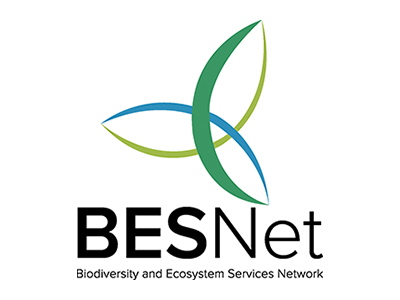The United Nations Development Programme (UNDP) is a key player in helping to achieve the eradication of poverty, and the reduction of inequalities and exclusion in the network of the UN system. UNDP helps countries to develop policies, leadership skills, partnering abilities, institutional capabilities and build resilience in order to sustain development results. It has a presence on the ground in nearly 170 countries and territories across the globe. In addition, UNDP also hosts the coordination function of UN activities at country level through the Resident Coordinator who is also the UNDP Resident Representative.
Since 2016, the Global Policy Centre on Resilient Ecosystems and Desertification (GC-RED) has been managing Biodiversity and Ecosystem Services Network (BES-Net), a capacity sharing ‘network of networks’ that promotes dialogue between science, policy, and practice for more effective management of biodiversity and ecosystems, contributing to long-term human well-being and sustainable development. BES-Net complements and contributes to the capacity building work of the Intergovernmental Platform for Biodiversity and Ecosystem Services (IPBES) by aligning its activities with the IPBES global assessment themes and applying the related IPBES guidance documents. In implementing its mandate, BES-Net follows an inclusive approach, collaborate with Multilateral Environmental Agreements, and draws on the support of other partner organizations.
Our collaboration: The overall aim of the UNDP-SwedBio collaboration is to strengthen the outreach and operations of the Biodiversity and Ecosystems Services Network (BES-Net) in developing countries Africa, Asia, Latin America and Eastern Europe to assist in integrating thematic issues of biodiversity and ecosystems management into national poverty alleviation and development programmes, to support the policy uptake and use of the IPBES assessments and the participation of Indigenous and Local Knowledge (ILK) holders in policy dialogues.
In addition UNDP (BES-Net) is collaboration with SwedBi on conducting a dialogue process on
“Advancing a human rights-based approach to Biodiversity and Climate Action”. The project will be commissioned by UNDP in collaboration with UNEP-WCMC and UNESCO. The overall aim of the collaboration is to build capacity and enhance the collaboration among the scientists, policymakers and practitioners to co-generate knowledge on BES and jointly design evidence-informed, strategic and transformative solutions for the conservation of biodiversity and sustainable management and use of essential ecosystem services. More specifically, the Project is dedicated to improving the multiple evidence basis (MEB) of national ecosystem assessments (NEAs) and enhancing regional understanding of transdisciplinary cooperation in safeguarding and restoring ecosystems.
SwedBio entered a collaboration with UNDP in June 2021.

 Ashanapuri Hertz
Ashanapuri Hertz